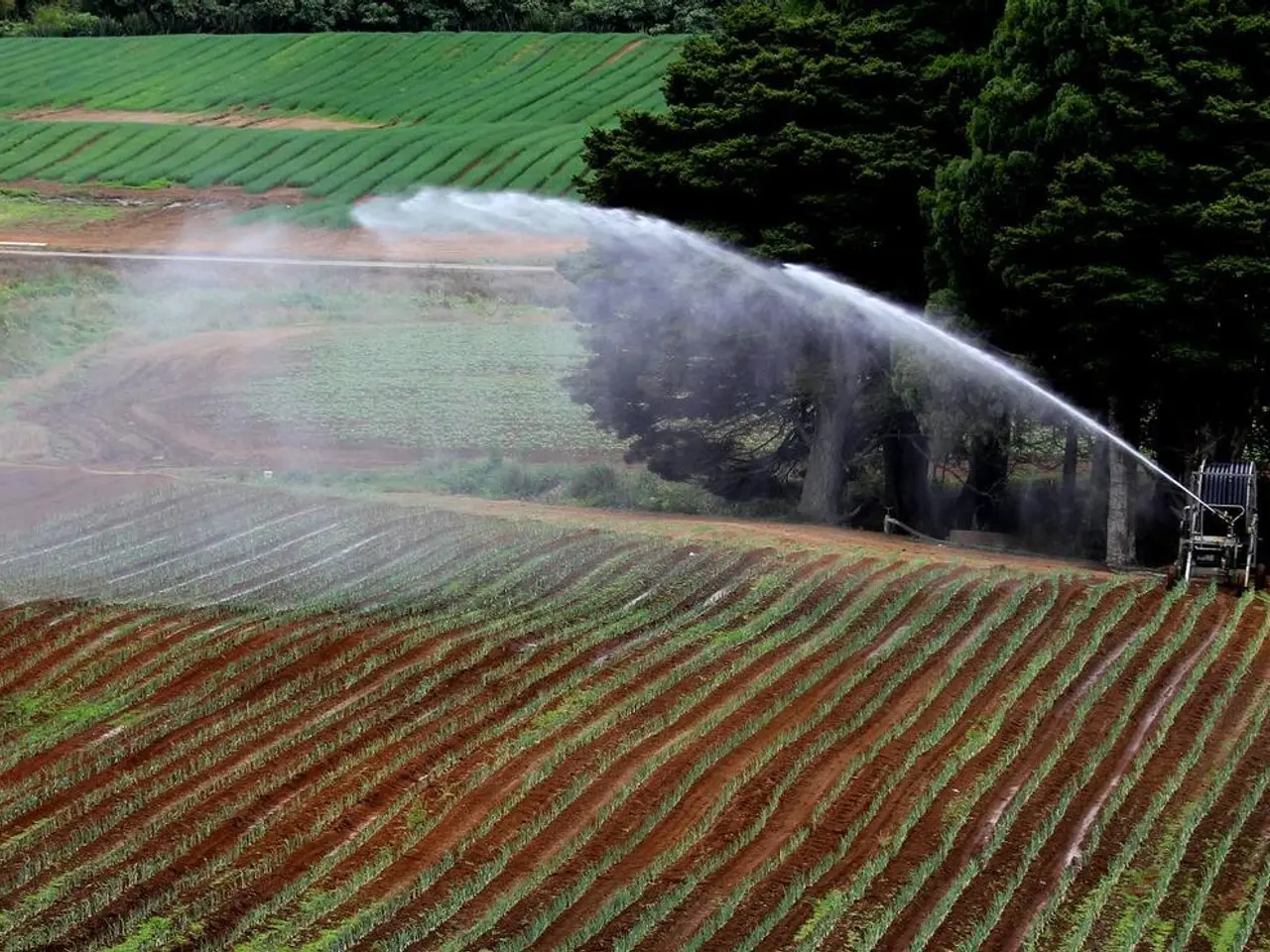Exploring the Role of Permaculture in Advancing Climate Action and Equity Movements
Permaculture, a system that combines plants, animals, and people in a balanced and regenerative way, is making waves in the fight against climate change and promoting social equity, especially in urban settings. Originating in the 1970s by Bill Mollison and David Holmgren, permaculture has evolved to become a powerful tool for climate justice and social empowerment.
At its core, permaculture aims to create sustainable societies by copying nature. It focuses on healthy soils, less waste, water saving, and wildlife protection, transforming unused areas into lively ecosystems. But it's more than just a gardening technique; it's a holistic approach that addresses environmental sustainability while empowering communities socially and economically.
In urban areas, permaculture can restore degraded lands, such as transforming trash heaps or vacant lots into urban gardens. This not only improves local ecology but also creates economic opportunities through food cultivation and sales. Moreover, it builds social leadership and inclusion by training women, youth, and persons with disabilities as climate champions and community leaders.
Permaculture also contributes to just urban agroecology, supporting food justice, equitable finance, and inclusive disaster risk reduction. It links food production with broader social equity and climate adaptation goals, especially in cities facing multiple layers of discrimination and climate risk.
Successful permaculture projects can be found worldwide, from el Organopónico in Havana to Asaṅga in the Pacific Northwest. Researchers from Penn State College of Information Sciences and Technology are also studying how digital solutions can support sustainable living in permaculture.
However, permaculture is not without its challenges. Limited land access, economic barriers, and concerns about cultural appropriation are some of the issues that need to be addressed. Respecting Indigenous knowledge and rights is crucial, and the concept of "Rematriation" - returning stolen lands and restoring Indigenous ways of life - is key in this effort.
Engaging with Indigenous wisdom can lead to more regenerative approaches in permaculture. Indigenous people protect 80% of Earth's biodiversity despite making up only 5% of the global population, and their ancient wisdom can provide valuable insights for sustainable living.
Policies supporting permaculture could include regulations for sustainable enterprises and research funding for renewable technologies. They should also focus on local economies and sustainable practices. Individuals can join community gardens, food forests, and urban farms, participate in mutual aid initiatives, support worker-owned cooperatives, make sustainable lifestyle choices, and engage with local activist groups.
In conclusion, permaculture is a strong way to fight climate change and environmental damage while promoting climate justice and social equity. By working together and focusing on local solutions, permaculture can protect traditional knowledge and strengthen both communities and ecosystems.
- The regenerative practices of permaculture are playing a prominent role in combating climate change and championing social justice, offering balanced solutions especially in urban settings.
- Adopting permaculture's core principles of sustainable societies involves replicating nature's methods, emphasizing soil health, resource conservation, water management, and wildlife preservation.
- Permaculture transforms neglected areas into vibrant ecosystems, not only enhancing local biodiversity but also providing economic benefits through agricultural production and trade.
- Beyond agriculture, permaculture fosters social and economic empowerment by training diverse groups, such as women, youth, and disabled individuals, as climate advocates and community leaders.
- Urban permaculture addresses just urban agroecology by connecting food justice, equitable financing, and inclusive disaster risk reduction with social equity and climate resilience goals.
- Globally, successful permaculture projects such as el Organopónico in Havana and Asaņga in the Pacific Northwest exhibit the potential of permaculture in fostering Environmental-science and Education-and-self-development.
- Penn State College of Information Sciences and Technology researchers are investigating digital solutions to support sustainable living in permaculture as part of Health-and-wellness, Fitness-and-exercise, and learning.
- However, challenges persist in implementing permaculture, including limited land access, economic disparities, and cultural-appropriation concerns that need to be addressed with respect for Indigenous rights and Knowledge.
- Reconnecting with Indigenous wisdom can lead to more regenerative permaculture practices as these communities protect 80% of Earth's biodiversity and offer valuable insights for personal-growth and Mental-health.
- Policymakers can address these issues by implementing regulations for Sustainable-enterprises and research-funding for renewable-technologies, focusing on Local-economies and Eco-friendly practices.
- Individuals can contribute to this cause by joining community gardens, food forests, and urban farms, participating in mutual aid initiatives, supporting worker-owned cooperatives, adopting eco-friendly lifestyle choices, engaging with local activist groups, and advocating for sports-betting regulation that prioritizes sustainability and social equity.




